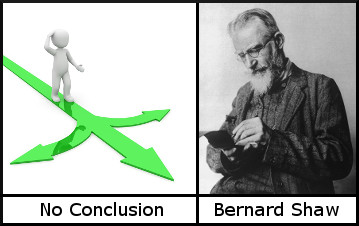Pablo Picasso? Giovanni Papini? Apocryphal?
Question for Quote Investigator: Pablo Picasso reportedly admitted in a “Confession” that he did not consider himself a great artist; instead, he was an entertainer who shocked and amused the rich and indolent to gain fame and wealth. Did Picasso really say this?
Reply from Quote Investigator: No. The well-known “Confession” was invented by an Italian journalist and literary critic named Giovanni Papini who wrote two novels filled with fictional encounters between the main character, a businessman named Gog, and famous figures such as Sigmund Freud, Albert Einstein, Henry Ford, and Pablo Picasso.
The first satirical work titled “Gog” was published in 1931, and the sequel “Il Libro Nero: Nuovo Diario di Gog” (The Black Book: New Gog Diary) was released in 1951.1 Papini’s writings were not intended to mislead readers. Yet, the fascinating statements he crafted for the luminaries were compelling enough to be remembered and misremembered. Reprinted passages in periodicals and books sometimes incorrectly indicated that the words were genuine. For example, in 1993 the scholar Frederick Crews wrote a powerful essay titled “The Unknown Freud” in “The New York Review of Books”. Unfortunately, one segment of the essay presented a statement ascribed to Freud by Papini as authentic.2 During the subsequent discussion Crews apologized and stated that his error stemmed from other scholarly works that improperly ascribed the words to Freud.3
A comparable misunderstanding occurred regarding Panini’s mock interview with Picasso. A columnist writing for “The Washington Post” in 1952 noticed that Paris newspapers were printing the interview. He accepted the Picasso attribution and shared fragments of the text with his readers:4
Paris newspapers are agog. The story has been picked up by several American publications including Quick.
Admitting himself to be “a public entertainer” exploiting as best he could “the foolishness, the vanity and the greed” of his contemporaries, Picasso recently confessed that he merely sought to please master and critic with the “new, the strange, the original, the extravagant, the scandalous … the less they understood them the more they admired me.”
Over the years, multiple translations have been created, and sometimes the translations have been indirect, e.g., English text has been derived from French text created from Italian text.
A 1954 book lambasting modern art titled “Peril on Parnassus” by William F. Alder included a version of the fictive remarks. However, a reviewer in the “Los Angeles Times” responded skeptically:5
Giovanni Papini’s alleged interview with Picasso, in which that painter was quoted as calling himself “a public clown, a mountebank,” is printed early in the book. But no mention is made of Picasso’s denial.
In January 1964 a journal of arts and literature called “Origin” published “A Confession” with a Pablo Picasso byline. The editor was unaware that the piece was based on “Il Libro Nero”. It began as follows:6
When I was young, like all the young, art, great art, was my religion; but, with the years, I came to see that art, as it was understood until 1800, was henceforth finished, on its last legs, doomed, and that so-called artistic activity with all its abundance is only the many-formed manifestation of its agony. Men are detached from and more and more disinterested in painting, sculpture and poetry.
The imaginary Picasso suggested that modern artists resorted to “expedients of intellectual charlatanism”. Picasso’s own works, he felt, consisted of whims, tom-fooleries, brain-busters, and arabesques. He concluded his essay:
Today, as you know, I am famous and very rich. But when completely alone with myself, I haven’t the nerve to consider myself an artist in the great and ancient sense of the word. There have been great painters like Giotto, Titian, Rembrandt and Goya. I am only a public entertainer who has understood his time.
This is a bitter confession, mine, more painful indeed than it may seem, but it has the merit of being sincere.
Below are additional selected citations in chronological order.
Continue reading “Quote Origin: I Am Only a Public Entertainer Who Has Understood His Times”



